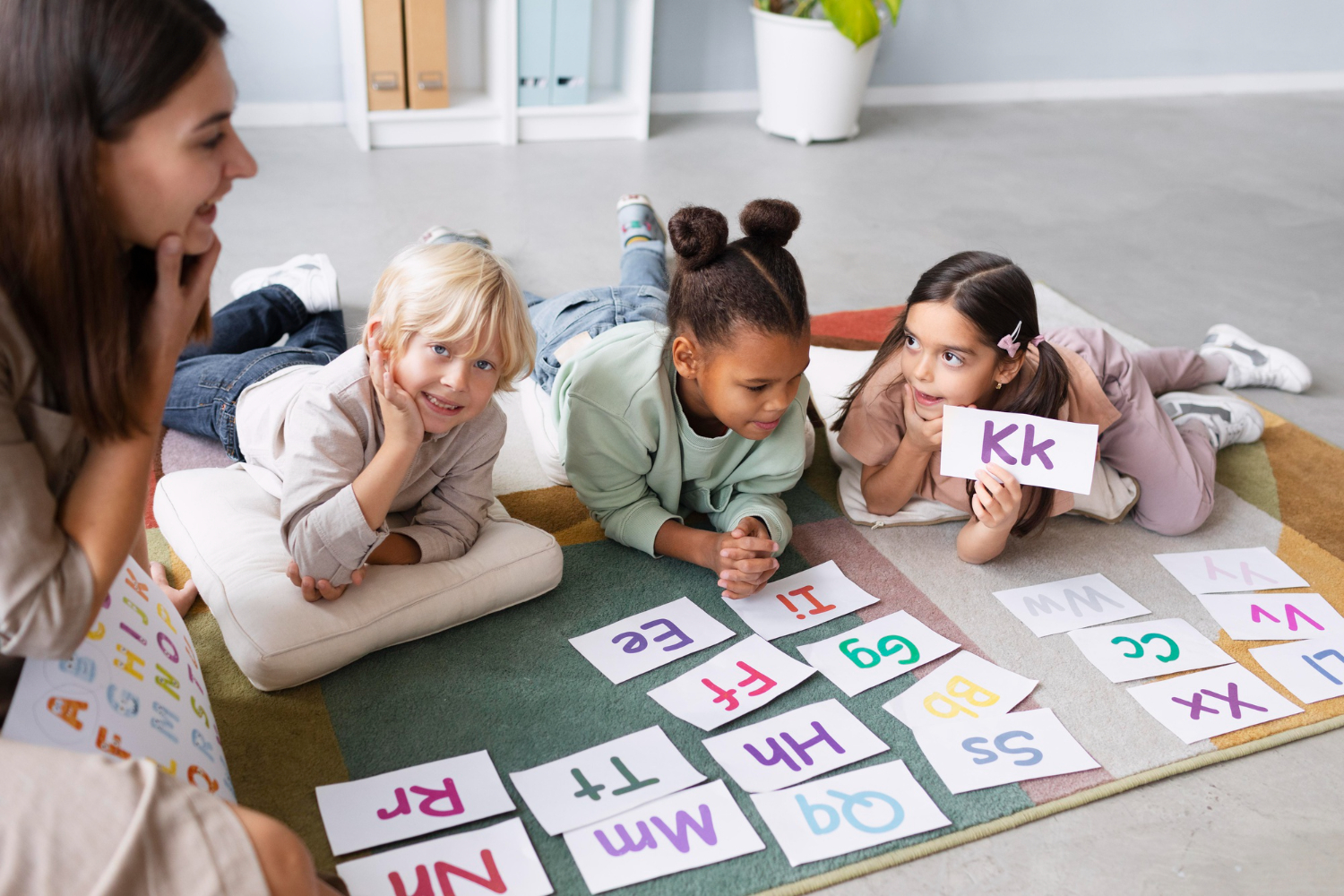Phonological awareness is a crucial foundational skill for reading and writing. It refers to the ability to recognize and manipulate sounds in spoken language, playing a significant role in a child's ability to decode words and develop strong literacy skills. Without phonological awareness, learning to read can be a challenge, as children may struggle to connect spoken language with written words.
Phonological awareness develops in a hierarchy, with each skill building upon the last. Speech therapy often includes fun, interactive activities to strengthen these skills:
- Rhyming – Recognizing and generating rhyming words helps children understand patterns in language.
Example Activity: Playing "I Spy" with rhymes—e.g., “I spy something that rhymes with ‘tree’ (bee)!” - Blending – Combining individual sounds (phonemes) to form words supports reading fluency.
Example Activity: Using picture cards, the therapist says a word in stretched-out sounds (e.g., /s/-/u/-/n/), and the child blends them to say "sun." - Segmentation – Breaking words into their individual sounds or syllables strengthens spelling and reading skills.
Example Activity: Saying “stay” and having the child segment each phoneme /s/ - /t/ - /ay/ - Deletion – Removing a sound from a word to form a new one helps children understand how words are structured.
Activity: Asking the child, “Say ‘star.’ Now say it again without the /s/ sound.” The correct response would be “tar.” - Isolation – Identifying individual sounds in words supports letter-sound connections.
Activity: Playing a sound hunt—e.g., “What is the first sound in ‘bat’?” The child responds, “/b/.” - Substitution – Replacing one sound with another to create a new word improves vocabulary and spelling.
Activity: Playing "Silly Word Swap," where the therapist changes a sound in a word—e.g., “What word do you get if you change the /h/ in ‘hat’ to /p/?” The child responds, “Pat.”
Building strong phonological awareness prepares children for reading success. Engaging in these speech therapy activities at home can make learning fun and effective. By developing these skills, children gain the tools they need to become confident readers.

